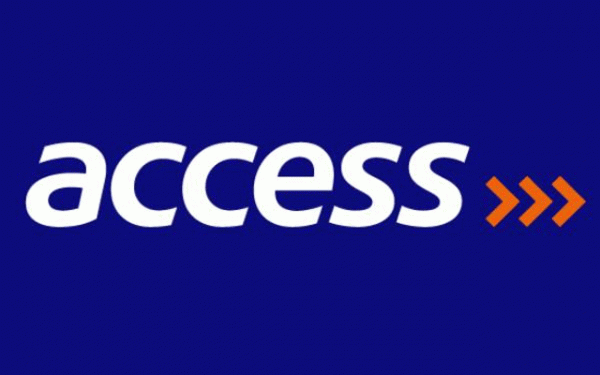- Access Bank, 27 Lenders Develop Global Banking Principles
Following the development of the Global Principles for Responsible Banking (GPRB) by Access Bank, 27 other global banks and other financial institutions have now become early endorsers of the principles.
The banks include Caixa Bank, Corporación Financiera de Desarrollo (Ccofide), DGB Financial Group, GLS Bank, KB Financial Group,KBC Group, Keystone Bank, Natixis, Qatar National Bank, Standard Chartered , and Zenith Bank .
The GPRB was launched for public consultation in Paris three weeks ago by the Arab African International Bank (AAIB) (Egypt), Access Bank (Nigeria),Banco Pichincha (Ecuador), Banorte (Mexico), Barclays (United Kingdom), BBVA (Spain), BNP Paribas (France) and Bradesco (Brazil). Others are Caixa Bank, CIMB Bank (Malaysia), Commercial International Bank (CIB) (Egypt), Corporación Financiera de Desarrollo (Ccofide), DGB Financial Group, First Rand (South Africa), Garanti Bank (Turkey), GLS Bank and Golomt Bank (Mongolia).
Also in the list are Hana Financial Group (South Korea), Industrial and Commercial Bank of China (ICBC) (China), ING (Netherlands), KB Financial Group, KBC Group,Kenya Commercial Bank (KCB) Group (Kenya), Land Bank (South Africa),National Australia Bank (NAB) (Australia), Natixis, Nordea (Sweden), Piraeus Bank (Greece), Qatar National Bank, Santander (Spain) and Shinhan Financial Group (South Korea).
Societe Generale (France), Standard Bank (South Africa), Standard Chartered Plc, Triodos Bank (Netherlands), Westpac (Australia), and YES Bank (India).
The principles will first be available for signature in September 2019, but until then banks and stakeholders can signal their support for and join the initiative by becoming official endorsers of the Principles. The global principles will align the banking industry with, and scale up its contribution to society’s goals as expressed in the Sustainable Development Goals (SDGs) and the Paris Climate Agreement.
By adopting the principles, Access Bank and the other institutions have signified a commitment to help promote the uptake of the principles among their members and networks. As a member of the United Nations Environment Programme Finance Initiative (UNEP FI), Access Bank is a leading partner on the initiative.
Speaking after the announcement, Group Managing Director/CEO Access Bank, Herbert Wigwe, explained that as a member of the UNEP FI, sustainability is an important global platform for the bank, especially in achieving sustainable growth through socially-responsible corporate practices.
“At Access Bank, we have stayed committed to ensuring that we place priority on not just being a profitable venture but also one that is deeply concerned about the planet and the people. With specific guidelines that have been developed, applied, and with rigorous monitoring, we can all ensure that we build a sustainable and prosperous future, achieve long-term business and financial benefits while driving urgent action that reduces the risk to the environment,” he said.
Access Bank’s Head, Sustainability, Omobolanle Victor-Laniyan said: “In order to continuously increase on impact through sustainability practices, we will consistently align our corporate strategies with ideas and activities that contribute to our customers’ needs, proactively engage and partner with relevant stakeholders in order to achieve Nigeria’s Sustainable Development Goals, the Paris Climate Agreement and relevant national and regional frameworks to which the country remains committed.”
Head, UNEP FI, Eric Usher, said: “Today we welcome the first official endorsers of the Principles for Responsible Banking. I am delighted that the Principles are already gathering support as we know that we need to see urgent action to address climate change and the other social and environmental challenges the world faces.”
UNEP FI Banking Lead Simone Dettling added: “The Principles for Responsible Banking provide an actionable framework for banks of any size and at any starting point to align their business strategies with society’s goals. We commend the first group of endorsers for taking this important step, and call on banks around the world to endorse the Principles and help develop the sustainable banking system of the future.”
The European Banking Federation, Natural Capital Coalition, SITAWI Finance for Good, the Spanish Banking Association, the European Association of Co-operative Banks, the European Sustainable Investment Forum, the BBVA Microfinance Foundation and the Spanish Savings Banks Confederation also officially endorsed GPRB.
The GPRB set the global standard for what it means to be a responsible bank and will ensure that banks create value for both their shareholders and society. They provide the first global framework that guides the integration of sustainability across all business areas of a bank, from strategic to portfolio to transaction level. The transparency and accountability mechanisms in the Principles require signatories to manage what matters most, set public targets and report back on progress.


 Naira4 weeks ago
Naira4 weeks ago


 Naira4 weeks ago
Naira4 weeks ago


 Naira3 weeks ago
Naira3 weeks ago


 News4 weeks ago
News4 weeks ago
 Travel4 weeks ago
Travel4 weeks ago




 Naira3 weeks ago
Naira3 weeks ago


 Jobs3 weeks ago
Jobs3 weeks ago
 Naira3 weeks ago
Naira3 weeks ago















